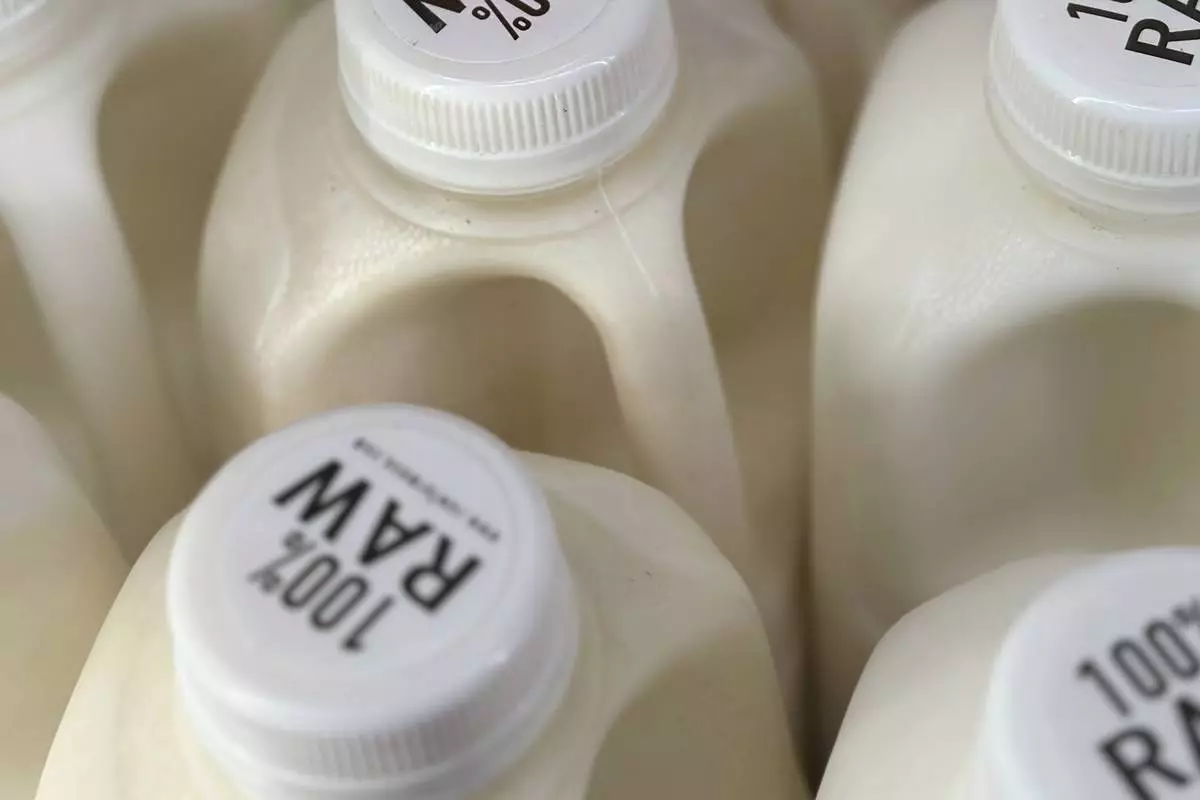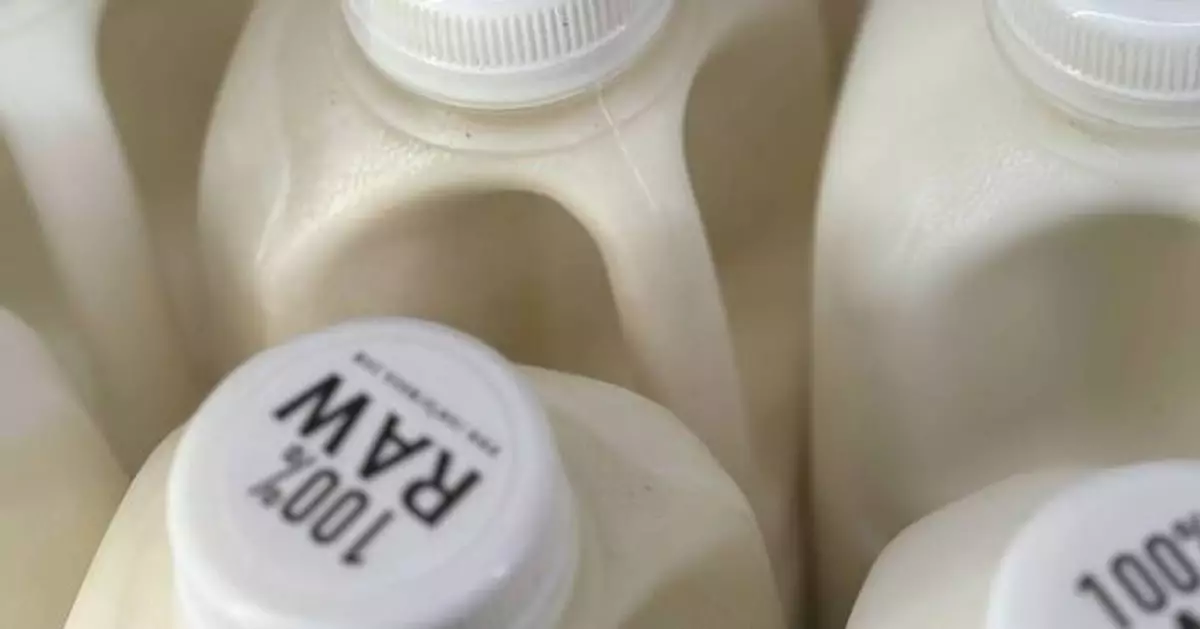President-elect Donald Trump's nominee for the nation's top health job, Robert F. Kennedy Jr., has vowed to allow wider distribution of raw milk across America. But the detection of bird flu virus in unpasteurized milk sold in California stores underscores what health experts say are the known and potential risks.
“You have to assume that raw milk, unpasteurized milk, has potential infectious agents that can cause serious illness in the people who drink it," said Michael Osterholm, a University of Minnesota infectious disease researcher who has investigated foodborne illness outbreaks.
Raw Farm LLC, of Fresno, California, voluntarily recalled one lot of “cream top” whole raw milk after Santa Clara County health officials found the bird flu virus in a sample last week. State health officials said the county has been testing raw milk sold in stores as “a second line of consumer protection.”
No illnesses have been traced to Raw Farm products, which have a lot code of 20241109 and a best-by date of Nov. 27. But officials with California's health department warned consumers not to drink the milk and said retailers should remove it from their shelves. On Tuesday, Los Angeles County health officials warned that “many retailers” there may have sold recalled raw milk contaminated with the virus.
Here's what else you need to know about raw milk and bird flu:
It’s not a surprise that the virus was found in raw milk sold in stores, Osterholm said.
Bird flu, also known as Type A H5N1 influenza, was first confirmed in U.S. dairy cattle in March and has been spreading widely. In California, more than 435 dairy herds have seen infections — more than all other U.S. states combined. And high levels of the virus have been found in the milk of infected cows.
About 20% of samples of pasteurized milk sold in stores were found to contain viral remnants of the virus, according to tests conducted earlier this year by government scientists. Pasteurization, or heat treatment, kills the bird flu virus and also bacteria such as E. coli, listeria and salmonella, which are known to make people sick.
Officials with California's Department of Food and Agriculture have been conducting weekly tests of raw milk in bulk tanks from the state's dairies. Additional tests conducted at Raw Farm sites in California were negative for the virus, but officials said they would begin testing for bird flu twice a week.
Few tests of unpasteurized milk products from stores have been conducted, so it's possible that other raw dairy products may contain the virus, Osterholm said.
“It is still really unclear how much testing is going on,” said Osterholm. “We're flying blind.”
To date, there's no evidence that people have been infected with the bird flu virus by drinking raw milk. At least 55 people in the U.S. are known to have been infected by the virus this year, but nearly all were dairy or poultry workers who developed mild illness after close contact with infected animals.
Tests have shown that mice fed raw milk contaminated with bird flu became very sick and barn cats on farms that drank milk from infected cows suffered brain damage and died, noted Nicole Martin, a microbiologist and associate director of the Milk Quality Improvement Program at Cornell University,
“I don't think we know yet whether people can contract H5N1 from consumption of raw milk, but we have enough evidence that would suggest that folks need to be a little more cautious right now,” Martin said.
Nearly 4.4% of U.S. adults, or about 11 million people, report that they drink raw milk at least once each year. About 1% of adults say they consume raw milk each week, according to a 2022 FDA study.
Proponents of raw milk cite perceived health benefits and better taste as key reasons for consumption. Raw Farm advertises its products as “unprocessed and complete” with vitamins, minerals, enzymes and beneficial bacteria.
Fans include Kennedy, who has said he only drinks raw milk. Kennedy has criticized agriculture departments for cracking down on raw milk and promised that the Food and Drug Administration’s “ aggressive suppression ” of unpasteurized milk would end under Trump.
Mark McAfee, owner of Raw Farm, has appeared several times on podcasts hosted by Nicole Shanahan, Kennedy's former running mate. Both Kennedy and Shanahan are customers, McAfee told the Associated Press.
“They want that same level of differentiating, wonderful, tested, gorgeous, safe, delicious raw milk for everybody," McAfee said.
Health officials have warned for years that raw milk can cause illnesses that range from mild to life-threatening. Between 1998 and 2018, the U.S. Centers for Disease Control and Prevention documented more than 200 illness outbreaks traced to raw milk, which sickened more than 2,600 people and hospitalized more than 225.
Before the U.S. adopted safety standards in 1924 under what was called the Pasteurized Milk Ordinance, about 25% of foodborne illnesses were related to dairy consumption, according to the Center for Dairy Research. Now, dairy products account for about 1% of such illnesses.
The Associated Press Health and Science Department receives support from the Howard Hughes Medical Institute’s Science and Educational Media Group. The AP is solely responsible for all content.

FILE - Bottles of raw milk are displayed for sale at a store in Temecula, Calif., on Wednesday, May 8, 2024. (AP Photo/JoNel Aleccia, file)











